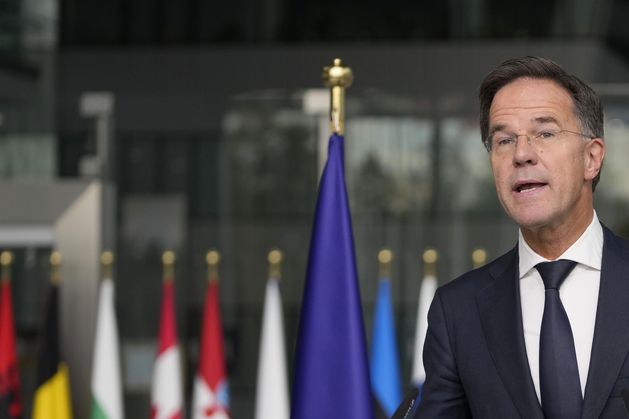Headline: Tech Giants Unite for Groundbreaking AI Ethics Initiative
The rapid evolution of artificial intelligence (AI) has prompted a coalition of leading technology companies to tackle ethical challenges in the sector. This unprecedented alliance, announced at the annual Tech Forward Conference in San Francisco on March 15, 2023, aims to establish a set of robust ethical guidelines that govern AI development and deployment. With the growing impact of AI on society, this initiative seeks to foster responsible innovation and ensure that technology serves humanity positively.
The Coalition Takes Shape
The coalition includes major players in the technology industry: Google, Microsoft, IBM, and Amazon, among others. Together, these companies represent a significant portion of the AI landscape. The initiative arose from increasing concerns about the societal implications of AI systems, particularly regarding privacy, bias, and potential job displacements.
“With the power of AI comes great responsibility. We can’t afford to ignore the ethical implications of our work,” stated Dr. Sarah Johnson, lead researcher in AI ethics at Stanford University, during the conference. The coalition’s objective is to create guidelines that will not only enhance trust in AI systems but also safeguard users’ rights.
Why Now? The Urgency of AI Ethics
Experts argue that the urgency of addressing AI ethics stems from the technology’s rapid integration into everyday life. From autonomous vehicles to AI-driven healthcare solutions, the decisions made by these systems can drastically affect individuals and communities. The 2022 AI Ethics Index, compiled by the World Economic Forum, highlighted that 70% of AI experts believe ethical considerations are often sidelined in favor of technological advancements.
The researchers involved in formulating the initiative are prioritizing three main areas:
- Transparency: Encouraging companies to be open about the algorithms they use and how decisions are made.
- Fairness: Taking measures to eliminate bias in AI systems that can lead to discriminatory outcomes.
- Accountability: Establishing methods for holding companies responsible for the consequences of their AI systems.
Key Features of the New Guidelines
The coalition plans to create a comprehensive framework that will serve as a guideline for best practices in AI development. Some key features of the forthcoming guidelines include:
- Mandatory Impact Assessments: Companies will be required to conduct thorough assessments to evaluate the social impact of their technology.
- Stakeholder Engagement: The involvement of diverse groups, including marginalized communities, in the development process to incorporate a wider range of perspectives.
- Continuous Monitoring: Implementing oversight mechanisms to ensure compliance with ethical standards over time.
Industry Reactions
The response from industry insiders has been generally positive. “This initiative represents a crucial step towards creating a fair and ethical AI landscape,” said Mark Thompson, CEO of a New York-based AI startup. “We hope that these guidelines are not just seen as regulations but as an opportunity for innovation that aligns with societal values.”
Meanwhile, some skeptics have voiced concerns about the potential for the guidelines to stifle innovation. Dr. Lila Chen, a technology policy expert, emphasized the need for a careful balance. “Innovation drives progress, but we must also make sure that it does not come at the cost of ethical integrity. It’s a delicate balancing act,” she noted.
The Road Ahead: Potential Impact on Society
As the coalition embarks on this critical mission, the ramifications of their work will reverberate across various sectors. Implementing ethical AI practices can significantly influence the public’s trust in technology, which is vital for widespread adoption.
The effort aligns closely with the European Union’s proposal for AI regulations, which seeks to minimize risks and ensure safety in the use of AI technologies. By proactively establishing ethical standards, the coalition aims to set a global precedent that may influence regulatory frameworks around the world.
Encouraging Influential Collaboration
The success of this initiative hinges on collaboration beyond the tech giants involved. The coalition is calling on academia, civil society organizations, and government bodies to contribute to the dialogue. “Building an ethical AI framework requires a multi-stakeholder approach,” stated Laura Ramirez, a policy analyst at the Center for Technology Innovation. “All voices must be heard and respected in this conversation."
In addition to fostering public discourse, the coalition has committed to sharing their findings and proposals with stakeholders worldwide. They are also exploring partnerships with other sectors affected by AI, from healthcare to finance, ensuring that ethical considerations are integrated across the board.
Join the Conversation
As the debate surrounding AI ethics continues to unfold, Shorty-News encourages our readers to engage with the topic. How do you think this initiative will impact the future of technology? Share your thoughts in the comments below or connect with us on social media. For more insights on AI trends and ethical practices, explore our related articles and stay tuned for updates on this groundbreaking initiative.
For further reading on the subject, consider visits to sources like TechCrunch, The Verge, or Wired for in-depth analyses and expert opinions.
This article is part of our continued commitment to providing high-quality, informative content on technology and its far-reaching implications.


